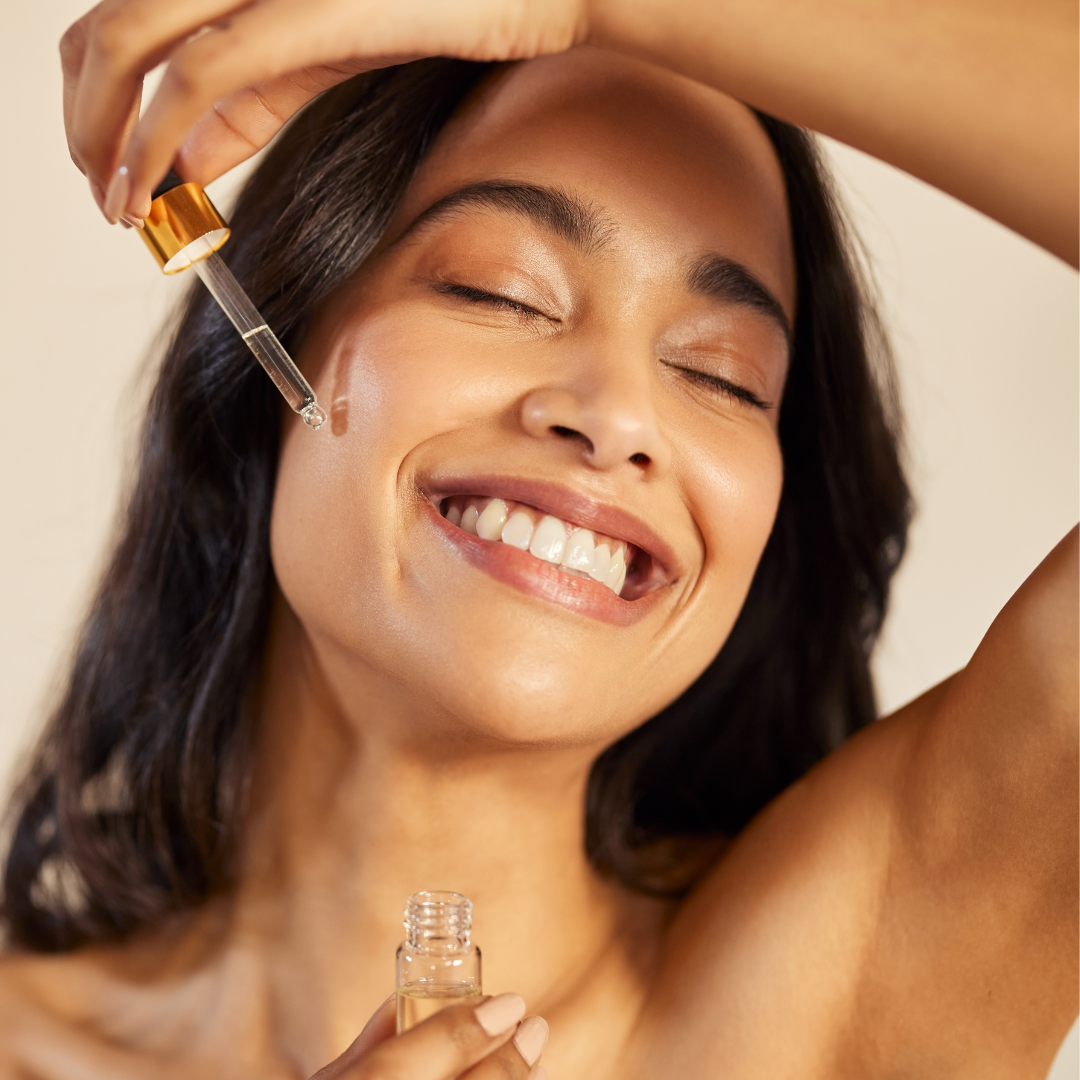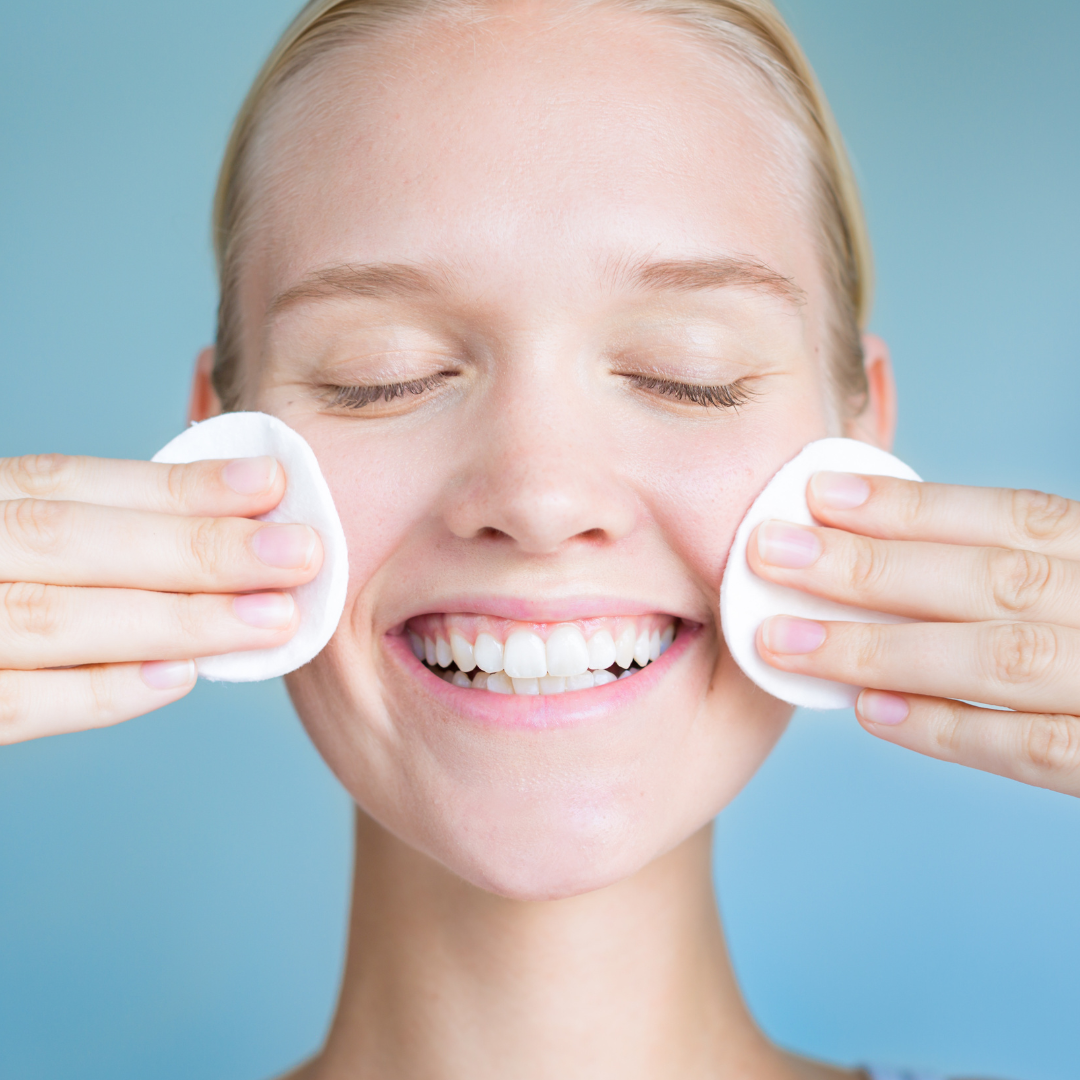
THE DIFFERENCE BETWEEN RETINOIDS, RETINOL AND BAKUCHIOL

CHOOSING THE BEST INGREDIENT FOR YOUR SKIN
When it comes to skincare, especially in maintaining skin health and treating acne, retinoids, retinol, and newer plant-based alternatives like Bakuchiol are highly regarded for their transformative effects. Let’s explore their differences to help you find the best option for your skin.
WHAT ARE RETINOIDS
“Retinoid” is a catch-all term for compounds derived from Vitamin A that work on the skin to promote cell turnover and stimulate collagen. Retinoids are highly effective but vary in potency and formulation. From prescription strength tretinoin to gentle retinol esters, each retinoid form targets specific skin concerns.
TRETINOIN (RETINOIC ACID)
Tretinoin is a potent, prescription strength retinoid known for its power to improve fine lines, pigmentation, and acne. Unlike over-the-counter retinol, tretinoin is already in its active form as retinoic acid, allowing it to work immediately upon application. Tretinoin’s efficiency in speeding up cell turnover and enhancing collagen production makes it one of the most effective, but it can also cause initial irritation, dryness, and sensitivity, which require gradual introduction into a routine.
HYDROXYPINACOLENE RETINOATE (HPR)
HPR is a newer form of retinoid often found in cosmetic formulations. Unlike retinol, HPR directly binds to retinoic acid receptors without needing to be converted by the skin, which gives it effectiveness closer to tretinoin but with less irritation. HPR is an excellent choice for individuals seeking the benefits of a potent retinoid without a prescription or the sensitivity that can accompany stronger formulas.
RETINALDEHYDE
Retinaldehyde, also called retinal, is the step between retinol and retinoic acid. This means it’s closer in potency to prescription retinoids, making it effective for addressing fine lines, pigmentation, and acne but with less irritation than tretinoin. Retinaldehyde is particularly popular for individuals looking for visible results faster than those achieved with retinol but who may not need the strength of a prescription option.
RETINOL
Retinol is perhaps the most widely recognised over-the-counter retinoid. Although less potent than prescription options, it’s very effective at promoting cell turnover, stimulating collagen, and addressing uneven skin tone. Retinol undergoes two conversion steps within the skin to become active retinoic acid, making it a good introductory retinoid with fewer chances of irritation. Many users notice benefits with consistent use, though patience is essential, as retinol can take several weeks to show results.
RETINOL ESTER
Retinol esters, such as retinyl palmitate, are the mildest form of retinoid and require multiple steps to convert to active retinoic acid within the skin. They’re a great option for those with sensitive skin or first time retinoid users who want to introduce their skin to Vitamin A’s benefits gradually. While the effects are gentler, retinol esters still offer some improvements in texture and tone over time.

BAKUCHIOL: A PLANT BASED ALTERNATIVE
In recent years, Bakuchiol, particularly the researched brand Sytenol® A, has gained popularity as a plant-based alternative to retinoids. Derived from the babchi plant, Bakuchiol has been shown in studies to mimic many of the benefits of retinol, such as reducing fine lines, pigmentation, and promoting elasticity—without the common side effects of irritation or sun sensitivity.
BENEFITS OF BAKUCHIOL (Sytenol® A)
• Acne Prevention and Anti-Inflammation
Bakuchiol has been clinically shown to mitigate acne symptoms by controlling excess sebum and inflammation. It can be used alone or with salicylic acid for a powerful acne-fighting regimen, helping reduce both comedones and erythema.
• Oxidative and Inflammatory Defense
Bakuchiol is a broad-spectrum antioxidant that prevents oxidative stress and lipid oxidation on the skin, making it effective for both acne-prone and aging skin. Additionally, it reduces inflammation by inhibiting pro-inflammatory genes and enzymes, which helps maintain the skin’s barrier function and combat visual signs of skin aging.
• Anti-Aging Effects Without Irritation
As an alternative to retinol, Bakuchiol’s gentle nature allows it to improve fine lines, wrinkles, elasticity, and overall skin firmness without the dryness and irritation often associated with retinoids. It has been proven to be a safer, stable alternative that delivers healthy radiant skin without sacrificing comfort.

Retinoids, including tretinoin, HPR, retinaldehyde, retinol, and retinol esters, are well researched and considered the gold standard for addressing signs of aging, acne, and pigmentation. However, they vary in strength and can cause irritation. Bakuchiol offers a gentle, plant-based alternative that delivers similar results without the discomfort. As noted by Harvard Health Publishing, Bakuchiol stands out as a highly effective, non-irritating ingredient. It tackles acne, prevents oxidative stress, and combats visible signs of aging, making it a versatile choice that can be worn day and night. With its gentle yet powerful benefits, Bakuchiol is the ideal for those seeking healthy, radiant skin without the irritation often associated with retinoids.


